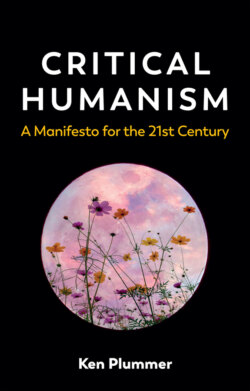Читать книгу Critical Humanism - Ken Plummer - Страница 19
The Plurality and Hybridity of Humanisms, Humanity and the World
ОглавлениеAnd so, let’s see humanity at its most expansive and generous. Humanism suggests a theory and practice of what it means to be human and to live a vibrant human life in an infinite pluriverse of time and space. But there is never just the one way: humanism appreciates the rich diversities of humanity in an ever-changing world, and the way in which human beings struggle to make sense of their lives, ultimately building worlds that intermingle with one another, with animals and with other things. A little while back, the sociologist Alfred McClung Lee, a much-ignored champion of a humanistic sociology, saw humanism emerging everywhere throughout history:
Humanism has figured in a wide range of religious, political and academic movements. As such it has been identified with atheism, capitalism, classicism, communism, democracy, egalitarianism, populism, nationalism, positivism, pragmatism, relativism, science, scientism, socialism, statism, symbolic interactionism, and supernaturalism, including versions of ancient paganisms, Hinduism, Buddhism, Judaism, Roman Catholicism, Protestantism and Mohammedanism. It has also been rationalized as being opposed to each of these. It has served as an ingredient in movement against each. And these terms do not at all suggest all of humanism’s ideological and social associations.9
This listing is not exhaustive: how could it be? There are many practitioners who make very particular claims: for example, Mahatma Gandhi’s nonviolent, pacifist humanism, Franz Fanon’s new humanism, Edward Said’s democratic worldly humanism, Marcus Morgan’s pragmatic humanism, Martha C. Nussbaum’s ‘cosmopolitan-cultivation-capabilities’ humanism, Paul Gilroy’s antiracist planetary humanism, Jeffrey Weeks’s radical humanism, Judith Butler’s mortalist humanism, Cornel West’s prophetic humanism of love, William E. Connolly’s entangled planetary humanism, Roberto Unger’s new religious pragmatic humanism – and many more.
To take just one major example. Edward W. Said was one of the world’s leading cultural critics of the late twentieth century. His work Orientalism spearheaded the postcolonial movement and decolonization. He argued for a position that many claim is anti-humanist. But this is not so. From his earliest works to his very last, he remained a staunch, if critical, humanist. As he famously said: ‘Humanism is the only … I would go as far as to say the final resistance we have against the inhuman practices and injustices that disfigure human history.’10 Working with this is a wide array of humanisms in the making that highlight the struggles of a range of human peoples: indigenous, disabled, colonized, racialized, gendered, queered. This curious listing seems endless. Diverse humanisms provide a deep flow of rich thinking.11
